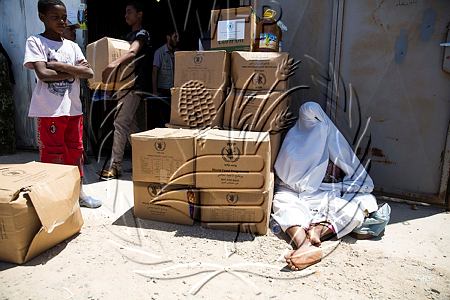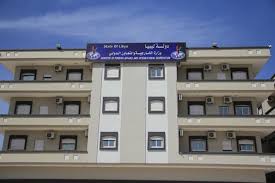By Libya Herald reporters.
Tunis, 26 July 2017:
Libya’s two Islamist TV stations, Tanasuh and Al-Nabaa have been added to the list compiled by Saudi Arabia, the UAE, Bahrain and Egypt of “terrorists” and terror organisations allegedly supported by Qatar.
Two other Libyan media entities have been added as well: Boshra and Soraya news agencies, both of which are linked to the Benghazi Revolutionaries Shoura Council (BRSC) and the Benghazi Defence Brigades (BDB).
The BRSC itself has also been added as has the fomerly Benghazi-based Rafallah Sahati Brigade.
The BRSC is effectively much the same as the BDB which was put on the list when it was first unveiled six weeks ago.
The main difference between the two is time and location. The BDB consists of those individuals who were with the BRSC when it was inside Benghazi but who fled the city and then reconstituted themselves in Tripoli as the BDB.
The Rafallah Sahati Brigade, which was part of the BRSC, was closely linked to Ansar Al-Sharia and is alleged to have received funding and support from foreign countries, including Qatar.
Also on the list are two individuals: Ahmed Al-Hasnawi and Al-Saadi Abdullah Ibrahim Bukhazem.
Hasnawi, a hardline Islamist, has been blamed for the Brak Al-Shatti airbase massacre in May in which 141 people died. He previously was based at Tanenhint Airbase, providing additional protection for Misrata’s Third Force when it was there.
Tanasuh TV is owned by Sadek Al-Ghariani, still accepted by some in the west of the country as Libya’s grand mufti. He was put on the terror list when it first came out.
A Saudi Press Agency statement read: “The two Libyan individuals and the six terrorist entities, affiliated with terrorist groups in Libya, have received substantial financial support from the Qatari authorities and played an active role in spreading chaos and devastation in Libya, despite serious international concern over the destructive impact of such practices.”
When the list was announced in June, as well as the BDB and Ghariani it included the Salabi brothers and former head of the Libyan Islamic Fighting Group Abdulhakim Belhadj. All were accused of having close links to Qatar.
Along with Saudi Arabia, UAE, Bahrain and Egypt, the Beida-based government also cut ties with Qatar at the time for what it said were “repeated attacks on the dignity of the Libyan people after the February 17 revolution”.
Libyan National Army spokesman Colonel Ahmed Mismari has since accused Qatar providing weapons other support to terrorists in Libya and claims to have evidence to support this although so far none has been provided.









